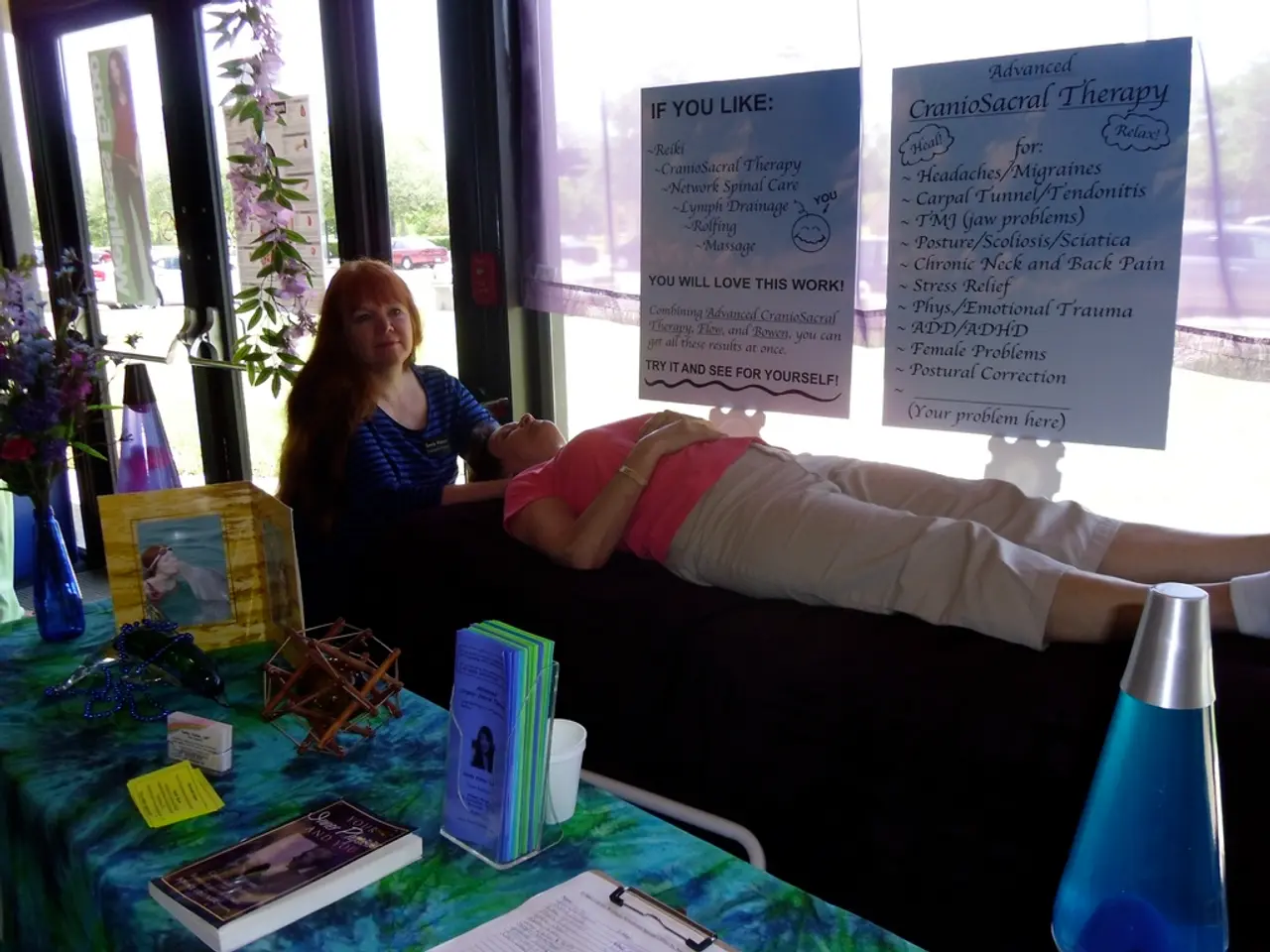Guiding an Individual Towards Seeking Professional Counseling
In the ongoing pursuit of mental wellness, our website offers a wealth of resources grounded in scientific research and evidence-based practices. These articles, designed to promote understanding and offer practical solutions, can be invaluable tools for those seeking to support a loved one struggling with mental health concerns.
One approach to helping a loved one overcome mental health stigma is through education. By providing accurate information and challenging myths, we can normalise mental health struggles and therapy as forms of self-care, rather than signs of weakness. Resources such as stigma reduction toolkits and awareness materials, which promote hope, inclusiveness, and resilience, can be particularly effective.
Creating a supportive environment is another crucial step. By fostering open, empathetic conversations and being a 'safe person' who listens and supports without judgment, we can build trust. Encouraging gradual openness, allowing the person to share what they feel comfortable with, and reassuring them that therapy is a positive step, not a sign of failure, is key.
Normalising therapy is essential. Framing it as a common and effective way to manage mental health, similar to seeking help for physical health issues, can help reduce fear. Sharing stories of others who have benefited from therapy can be inspiring and further reduce barriers to starting therapy.
Practical help can also make a significant difference. Offering to help find a therapist or accompany them to their first appointment can remove obstacles and demonstrate support. It's important to remember that mental health services are confidential, tailored, and focused on the individual's well-being.
Community resources can also play a vital role. Leveraging community programs, school or workplace mental health initiatives, and advocacy groups can provide stigma reduction education and peer support. Awareness campaigns by public health organisations aim to reduce stigma and improve mental health access, reinforcing the decision to seek therapy.
It's essential to respect the autonomy of the person you are trying to help, allowing them to make their own decisions about therapy. Continue to offer ongoing emotional support, even if they do not immediately decide to pursue therapy. Regularly checking in with the person and sending encouraging messages can make a significant difference.
In conclusion, by combining education, empathetic support, normalisation, practical help, and community resources, we can effectively assist a loved one in overcoming stigma and taking the important step towards mental health care. The focus is on creating an environment where seeking therapy is seen as a brave, positive, and hopeful choice.
As of October 17, 2024, mental health stigma persists in the U.S. and abroad, despite efforts by platforms like the website mentioned to promote mental wellness. However, with growing mainstream exposure of mental health issues and therapy, more people are seeking help.
For relationship strengthening, either together or apart, at convenience, Couples Therapy Online is available. Active listening, demonstrating genuine care and understanding, and choosing a relaxed, distraction-free, and comfortable setting are key to encouraging the person to open up about their feelings. Research local therapists using directory sites like Psychology Today to find a good match.
Finally, recognising signs of distress, such as withdrawal, mood swings, persistent sadness, or anxiety, is essential in identifying those who may benefit from professional help. The articles on our website provide up-to-date, valuable, and objective information on mental health-related topics, written by experienced mental health-wellness contributors and reviewed by a team of clinical experts. Social media campaigns such as #EndtheStigma have increased conversations about mental health, further reducing the stigma surrounding mental health issues and therapy.
- In the fight against mental health stigma, education plays a crucial role. By utilizing resources from our website, which incorporates scientific research and evidence-based practices, we can challenge misconceptions, normalize therapy, and promote mental health-and-wellness.
- Online therapy, such as Couples Therapy Online, can provide a valuable avenue for couples to strengthen their relationship, especially when addressing mental health concerns. It is important to maintain an empathetic and distraction-free environment to encourage open discussions.
- As part of the ongoing efforts to reduce stigma and improve mental health access, mental health articles on our website offer up-to-date, objective information, along with social media campaigns like #EndtheStigma, which help to foster conversations about mental health and dismantle pre-existing notions.




